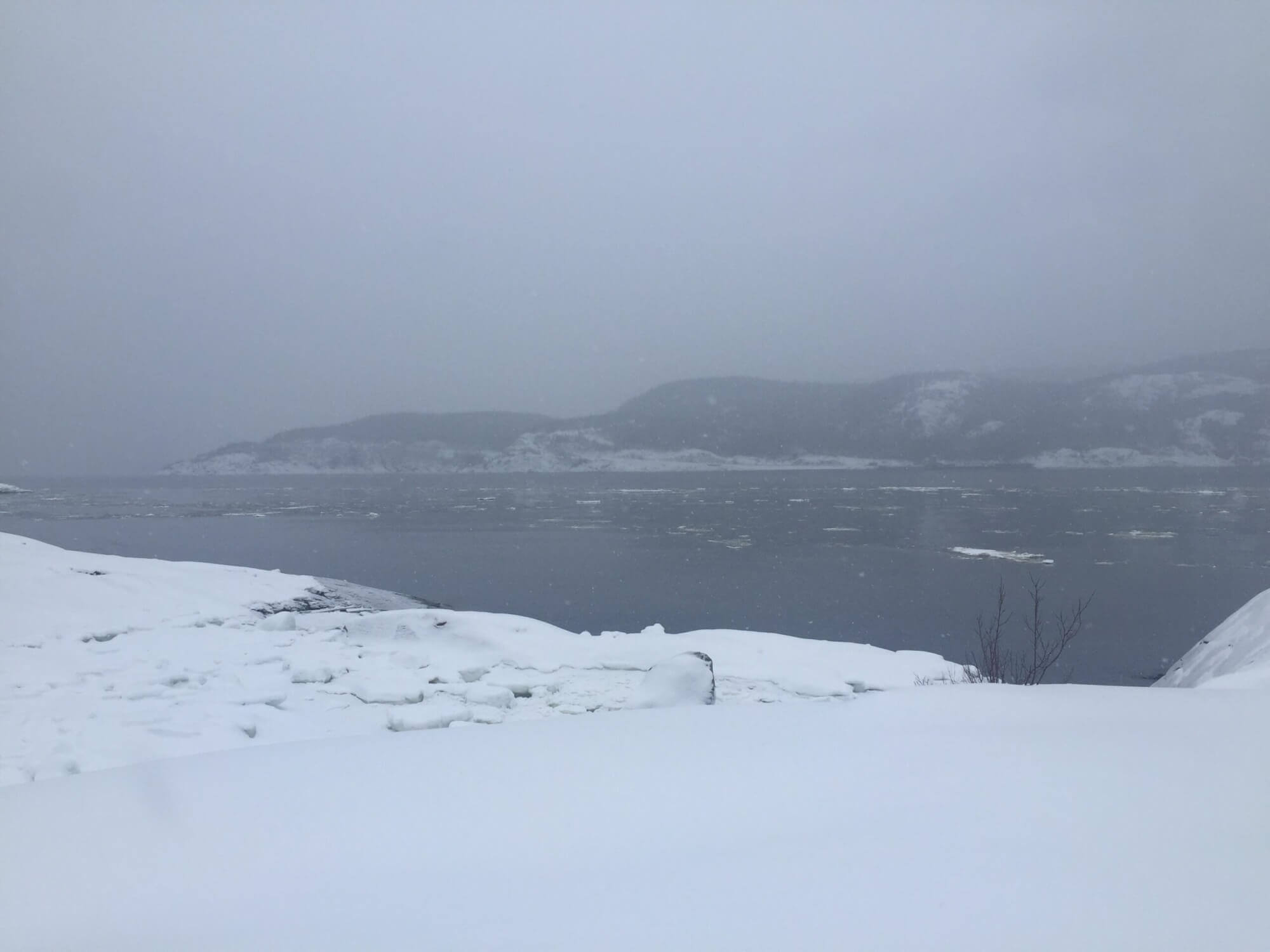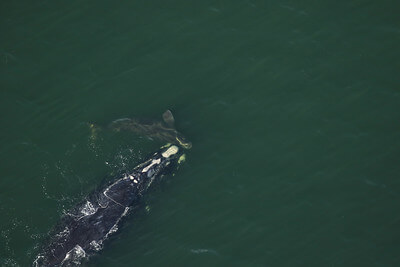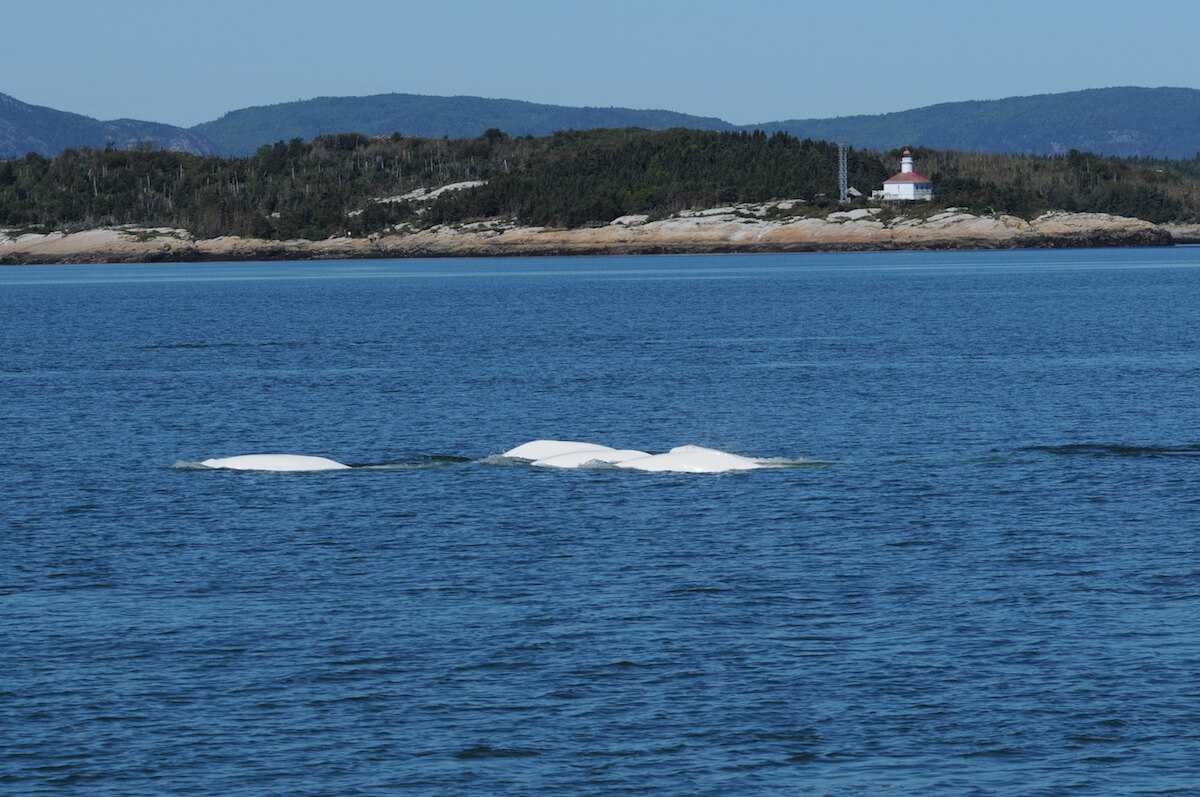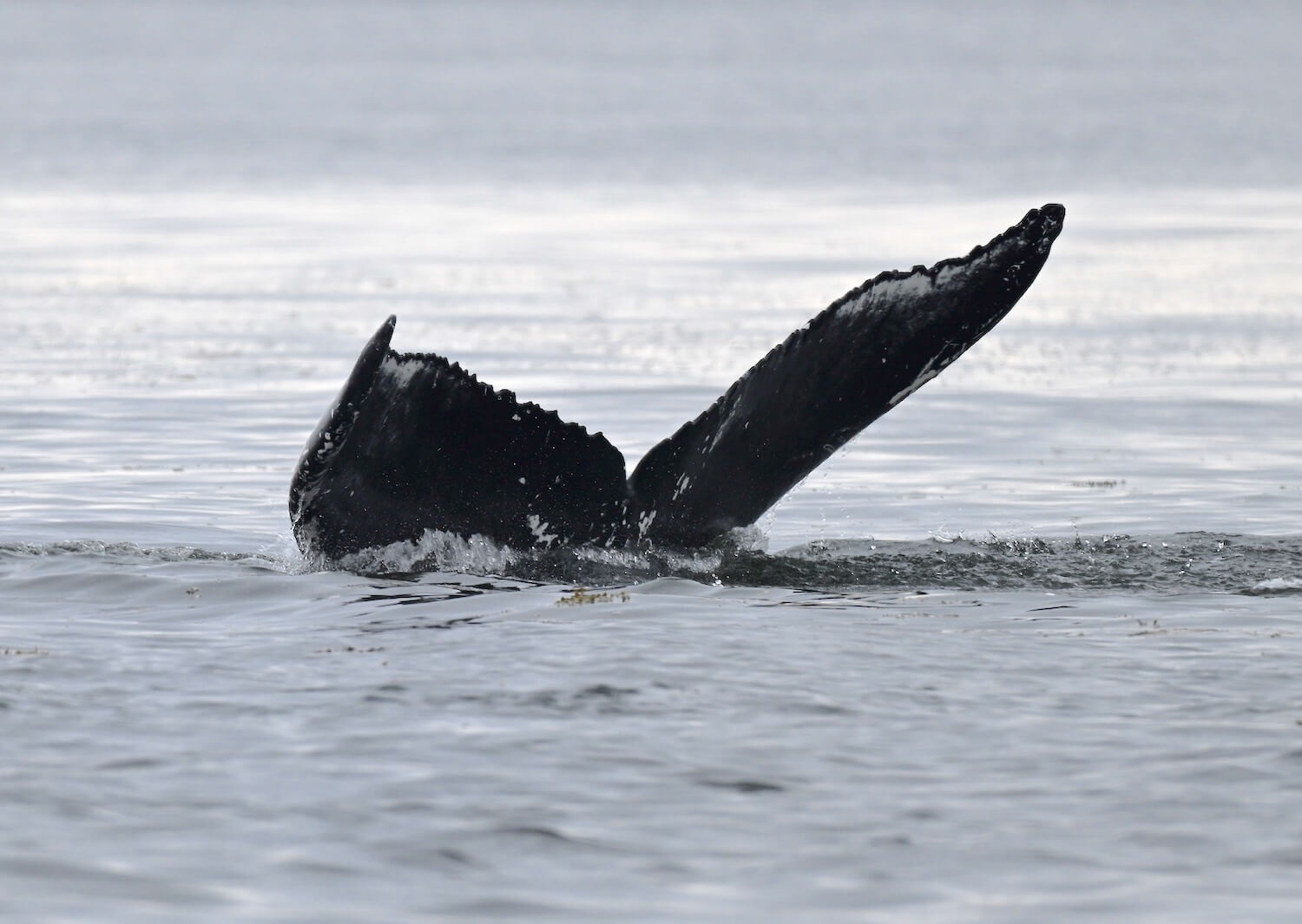Throughout the St. Lawrence, the snowfall of the past few days has put a damper on opportunities for watching marine mammals. Nevertheless, a few belugas as well as harbour and harp seals have been observed. And, from down South, there are reports of newborn North Atlantic right whales and humpback whales!
Harbour seals were occasionally present in the choppy waters off Cap de Bon-Désir in Les Bergeronnes, in addition to being seen resting on the banks of the St. Lawrence. Harp seals on the other hand are quietly abandoning Gaspé Bay, which they invaded en masse last week.
Winter belugas
Solitary belugas were seen swimming at the mouth of the Saguenay in recent days. “Just one, all by itself,” explains one resident. However, I searched for 15 minutes to see if there were any others…” A few days later, another one of these white whales crossed the waters just in front of Pointe-Noire. A few individuals were also spotted from Cap de Bon-Désir. Indifferent to the frigid winter air, the snowstorms and the fresh water that supports their bodies, they continue about their daily lives in the St. Lawrence.
News from down South!
From the more temperate waters of the Caribbean, where humpback whales spend their winter breeding season, the Turks and Caicos Islands Whale Project had some good news to share: The first mother-calf pair of the year has been observed! In this species, gestation lasts 11 to 12 months while births take place between January and March. Calves are nursed for 5 to 10 months and remain with their mother for 1 year, sometimes 2. This bond between a mother and her offspring is the longest of any baleen whale. A little earlier in the project’s observation season, i.e. just before Christmas, there was a sighting of the humpback whale Queen, who is well known in the St. Lawrence.
The breeding season for North Atlantic right whales is in full swing. A 14th calf has already been reported for the 2023-2024 season! This is excellent news for this endangered species, though this figure is still far below what would normally be required in order for the population to grow. Mating and calving in North Atlantic right whales take place in winter, i.e. between November and February. Gestation takes about 12 months while nursing lasts 6 or 7 months, and sometimes as long as a year and a half. Unfortunately, of these 14 births, monitoring efforts have already revealed two deaths and one seriously.
Thanks to all our collaborators!
Special thanks go out to all our observers who share their love for marine mammals with us! Your encounters with cetaceans and pinnipeds are always a pleasure to read and discover.
On the water or from shore, it is your eyes that give life to this column.
Laetitia Desbordes
Patrice Corbeil
Élizabeth Melis
Diane Ostiguy
Renaud Pintiaux
Pascal Pitre
Andréanne Sylvain
Marielle Vanasse
And all those we left out!
Additionally, we would like to acknowledge the following teams for also sharing their sightings:
Mingan Island Cetacean Study (MICS), Marine Mammal Observation Network (ROMM),
Quebec Marine Mammal Emergency Response Network: Status Report (QMMERN),
Group for Research and Education on Marine Mammals (GREMM)
Would you also like to share your observations?
Have you seen any marine mammals in the St. Lawrence? Whether it’s a spout offshore or just a couple of seals, drop us a line and send your photos to [email protected]!






